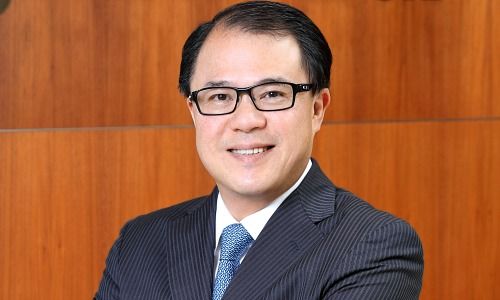Julius Baer Hires Amidst Unrest in Hong Kong
Swiss bank Julius Baer has added no less than 40 new relationship managers in the region, despite the on-going protests in Hongkong, David Shick says in an interview with finews.asia. He is in charge of Greater China and Hong Kong.
Julius Baer has long-proclaimed Asia to be at the heart of its growth strategy, the region accounts for one-fourth of the group’s assets under management. Not surprisingly then, the bank’s Chief Investment Officer Yves Bonzon has taken a contrarian call on Hong Kong, despite the continuing instability ravaging it. Are clients biting?
«Yes,» says David Shick, the head of private banking in Greater China and Hong Kong, «clients share our view. It comes down to whether or not you believe China will be an asset class in its own right in the future if you do then this is an excellent time to buy into that. We have had an uptick in client activity over the last month,» he confirms in an exclusive interview with finews.asia.
Flight Of Assets?
Is this increase in transactions merely clients churning in and out of securities while the bulk of their assets are moved to safety elsewhere? Perhaps in Singapore? «No, I haven’t seen this so-called flight of assets to Singapore,» Shick who has been a banker in the region for several decades, is quite clear.
Traditionally, splitting assets between Hong Kong and Singapore was the default diversification strategy for Asian clients, even during more peaceful times. «We promoted diversification long before the current situation and encouraged clients to split booking between Hong Kong and Singapore equally,» agrees Shick. «As a result, there is no pent-up demand to diversify to Singapore or some mass exodus of clients.»
Double-Digit Growth
«Over the last year, assets under management at Julius Baer Hong Kong have grown by double digits in percentage terms,» says Shick who believes the growth comes despite a stagnant pool, «as you know the Hong Kong market has not grown as a whole». The last month is representative of a larger momentum the bank has generated in the region, where assets have grown in «the high double-digits, compounded annually,» says Shick.
Despite three global CEOs in the span of two years, Shick believes the bank has not wavered in its commitment to the region. «The strategy for Asia has remained constant across our previous CEOs and it will continue to be a market Julius Baer will pay a lot of attention to going forward,» he says.
Many New Bankers, More To Come
If proof were needed of this continued commitment, the bank’s hiring spree over the last two quarters is ample – 40 new bankers have joined its Greater China team based in Hong Kong. «All of the new hires are senior bankers from industry leaders like UBS, Credit Suisse, HSBC, Deutsche Bank, Standard Chartered, Bank of Singapore and BNP Paribas,» says Shick who spent much of last year meeting with several hundred candidates.
«Considering there are an estimated 2,500 bankers in Hong Kong SAR that is a large fraction of the industry,» he says and «I am not done hiring, in fact, my plan is to accelerate this push over the next two years.»
No Premium To Market
The franchise may be growing at a record pace but the hiring is not new, in fact, the pure-play has garnered a reputation for being one of the most aggressive acquirers of talent. Questions remain on whether it is paying a premium to elbow its way into the fierce competition that exists amongst top tier private banks.
«Do not believe market rumors that say Julius Baer is using compensation as a hook to hire,» Shick says anticipating the question. «Our cost/income ratio is made public [it is just above 71 percent at the group level] and the branch costs are aligned with this ratio .»
It may sound trite but Shick insists it is the absence of conflict inherent in a pure-play business that is Julius Baer’s particular appeal. «We don’t push products, we don’t manufacture products. This is very different from what the relationship managers we interview are used to at their current organizations.»




























